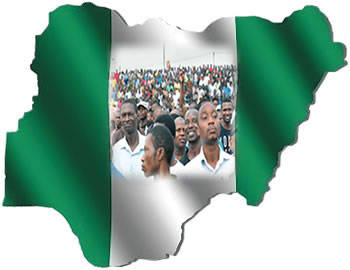This noisy country
When the late President Ferdinand Marcos lost out for bad governance in his country, the Philippines, his wife, Imelda, she of the 3,000 pairs of shoes fame, said quite seriously that her husband’s rule was impaired by too much noise in the land. I thought she was talking nonsense, finding an excuse where none existed, […]

When the late President Ferdinand Marcos lost out for bad governance in his country, the Philippines, his wife, Imelda, she of the 3,000 pairs of shoes fame, said quite seriously that her husband’s rule was impaired by too much noise in the land. I thought she was talking nonsense, finding an excuse where none existed, to blame her husband’s incompetence and dictatorship on others.
The sound you now hear, not unlike that of an Indian eating hot yam pottage while trying to speak English at the same time, is this old codger munching his words. I am now convinced that she was right. Noise is a veritable enemy of good governance. I am surprised that no Nigerian leader, in khaki or agbada, has thought it necessary to criminalise noise in the land to save them the headache of listening to all that jabbering in the name of contributing to national discourse.
The more serious aspect of this is that those who are most eager to contribute to the national discourse are the people least qualified to do so, being effectively ignorant of the nuances of democracy, the rule of law and good governance. I do not hold their untutored minds against them but merely to point out that if some of us resist the temptation to offer an opinion on how we are governed when they do not really know how we are governed, our leaders would find fewer challenges and concentrate on good governance as they understand the loveable phrase.
Noise is a disturbance of individual as well as public peace. It assaults your ears. It disturbs your peace of mind. Everything about us in the country is noisy. Our politics is noisy. Our religious worship and proselytization are noisy. Our music is noisy. Our telephone conversation is noisy. Our greeting is noisy. I can think of no other country in the world that has such a strong faith in noise-making and offers it to the rest of the world as evidence that it is moving forward in its social and economic development.
This is a plea for pulling back, lest we reach a point at which a future leader of this country bombarded by noise might issue a shoot-at-sight order against noise-makers.
A few years ago, Lagos State government enacted a law to curb noise in the metropolis. The law now sleeps blissfully between file covers. Two women along my street in my part of the metropolis have taken advantage of this. Between the hours of 5 and 6 every morning, they come out with a bull horn warning us about the fires of hell and what we must do and do urgently to escape that dreadful punishment reserved for unrepentant souls in the informed view of Christianity. I commend their gallant efforts to save our souls but I do not appreciate the noise they unleash on us, sending us out of bed as of right.
You may think that noise is not a serious matter. I assure you that it is. Our national discourse is characterised by noise. The effect of this is that we do not hear one another. And so we cannot agree on anything or regard anything as a settled matter. We move in circles and are unable to break out of it because of noise. A nation that cannot listen to itself cannot forge the ways and means of moving forward in a meaningful way.
Yes, Senator Imelda Marcos was right. Noise is an enemy of good governance because if the leader of the country cannot listen to his people, there is no way he can respond to their crying needs. Surrounded by so much noise, he becomes a victim of permanent distraction in the land. He cannot plan and if he plans he cannot execute his plans because he is confused by so much noise. It is no small wonder that our leaders do not complain about this. They would be perfectly right to offer noise as an excuse for not doing what they ought to do and doing those things they ought not to do.
Democracy, by its nature, is a noisy form of government. Its strength is also its weakness. The freedom of speech it guarantees citizens makes no distinction between noise that passes for the exercise of that freedom for its own sake and a sane contribution to the national discourse as a product of sober and reflective reasoning. If we must move forward – and we must – then let us learn to be less noisy and more sober-minded in our approach to national issues. Let us learn to hear one another.
I ask for the revival and the full enforcement of the Lagos State law on noise. I commend it to other states. In doing so, I confess that I somehow dread living in Nigeria sans noise. I know that noise makes us unique. I know too that it is a national curse. I am all for experimenting with a country with less noise. I can almost see and savour the benefits of a Nigerians sans noise. Spare a thought for it.
